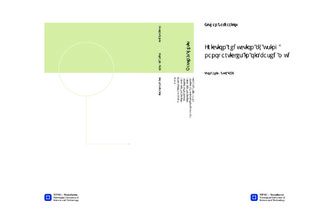Friction reduction by using nanoparticles in oil-based mud
Master thesis
Permanent lenke
http://hdl.handle.net/11250/240487Utgivelsesdato
2014Metadata
Vis full innførselSamlinger
Sammendrag
Nowadays, increasing demand on petroleum resources and depletion of easy accessible reservoirs result in exploration of challenging reservoirs. Drilling of deeper reservoirs is an important part of this challenge where increasing the well depth and harsh drilling circumstances arises torque and drag problems and smart drilling fluids are required to overcome such problems. These fluids can be obtained by using of some nano-materials to improve the tasks and features of drilling fluids. Use of the nanoparticles are promising and adding them into the drilling fluids can solve some problems during drilling such as lost circulation, pipe sticking, thermal instability, torque and drag and etc. In this work, improvement of lubrication behavior of drilling fluids are mainly investigated by adding nanoparticles into the oil-based mud (OBM).Tribological and rheological experiments were conducted to examine reduced friction and rheology of the mud by using titania and silica nanoparticles as an additive. Additionally, silica microparticles were also tested to compare with nanoparticles and to highlight the advantages of using drilling fluids with the nano-scale additive. Different particle concentrations were tested at the different temperatures to observe the effect of nanoparticle added fluids on rheological and tribological properties. The main purpose of this work is to determine right type of nanoparticles with optimum concentrations. In this thesis, rheological and tribological measurements were conducted on a modular compact rheometer (MCR). Afterwards, only tribological measurement was performed on standardized in-on-disk apparatus to validate the results acquired from MCR. The tribology experiments with the MCR and pin-on-disk (POD) apparatus were performed using rotational ball sliding on sample plates and disks, accordingly. While viscometer measurements with the MCR were done based on the function of the Fann viscometer.According to the experimental results, titania and silica added nanoparticles showed good reduced friction properties. Especially, silica nanoparticle added fluids with the concentration of 0.25 weight% reduced friction coefficient by 47% at the temperature of 50°C. It is also found that silica nanoparticles are more effective in reducing the friction coefficient when it is compared to silica micro-particles. Additionally, coupling effect theory between temperature and nanoparticles was prove with addition of nanoparticles (NPs) to the OBM. As further study, optical 3D confocal microscope was used and OBM was found better lubrication than water-based mud(WBM)as a drilling fluid.
